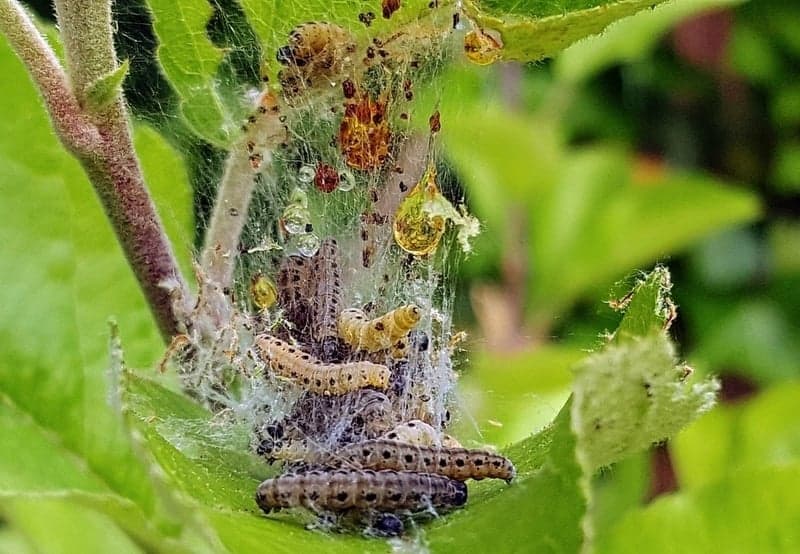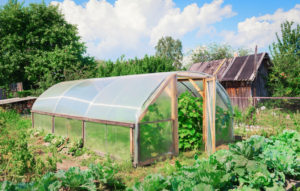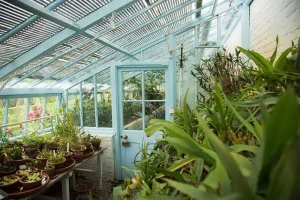Off-grid vegetable gardens are a great way to produce fresh, healthy produce while minimizing your carbon footprint.
However, these gardens can also attract unwanted pests that can cause significant damage to your crops.
We’ll take a closer look at some common pests you may encounter in your off-grid vegetable garden and provide actionable tips on how to identify, prevent, and control them.
From slugs and snails to hornworms and aphids, we’ve got the tools you need to beat these pesky critters and keep your garden thriving.
Aphids
These tiny insects can cause big problems for your garden, sucking sap from plants and transmitting diseases. To get rid of them, spray them with a strong stream of water or use neem oil.
These pests are common in many gardens, and their effects can be devastating.
To tackle the problem, there are two effective methods to get rid of aphids: spraying them with a strong stream of water and using neem oil.
Spraying aphids with water is a simple yet effective way to eliminate them.
Use a strong jet of water to dislodge the aphids from the plant, making sure to spray the undersides of leaves and stems where aphids often hide.
This method is especially useful for small infestations, as it can be done manually with a garden hose or a spray bottle.
However, be mindful of the plant’s overall health, as excessive water pressure can damage the leaves and stems.
Another effective method to control aphids is by using neem oil.
Neem oil is derived from the seeds of the neem tree and has natural insecticidal properties.
It works by disrupting the hormone system of aphids, preventing them from reproducing and ultimately killing them.
To use neem oil, mix it with water according to the product’s instructions and spray it on the affected plants.
Neem oil can be used in conjunction with water spraying to enhance its effectiveness.
It’s important to repeat these treatments every few days, as new aphids may emerge to replace the ones that have been eliminated.
Aphids can be a significant threat to your garden’s health, but by using either water spraying or neem oil, you can effectively get rid of them and protect your plants from further damage.
Aphids can be a major nuisance for gardeners, as these tiny insects can quickly multiply and cause significant damage to plants.
One common method for controlling aphids is by spraying them with water pressure.
This can be effective in removing aphids from the plant, but be careful not to use too much pressure, as it can damage the leaves and stems.
Another effective method for controlling aphids is by using neem oil.
Neem oil is a natural insecticide that is derived from the seeds of the neem tree.
It works by disrupting the hormone system of aphids, preventing them from reproducing and ultimately killing them.
To use neem oil, mix it with water according to the product’s instructions and spray it on the affected plants.
For best results, repeat these treatments frequently to ensure that all aphids are eradicated.
It is important to regularly monitor the plants for any signs of aphids and take action immediately if any are found.
This can include pruning infected leaves or stems and introducing natural predators such as ladybugs or lacewings.
By taking proactive measures to control aphids, gardeners can prevent significant damage to their plants and ensure a healthy and thriving garden.
Caterpillars
These hungry pests can eat holes in leaves and ruin your harvest. Use Bt (Bacillus thuringiensis) or spinosad to kill them, or hand-pick them and drop them in a bucket of soapy water.
Caterpillars, those voracious pests, can cause significant damage to your crops by eating holes in leaves and stunting your harvest.
To effectively combat these caterpillars and protect your crops, there are several actionable steps you can take.
You can use Bt (Bacillus thuringiensis) or spinosad, both of which are organic and safe to use on food crops.
These substances are highly effective at killing caterpillars, but they are not toxic to humans and other beneficial insects.
You can manually remove the caterpillars by hand-picking them and dropping them into a bucket of soapy water.
This method is not only effective, but it also allows you to inspect your plants closely and catch any potential infestations early on.
By taking these proactive steps, you can protect your crops and ensure a healthy and productive harvest.
Slugs and snails
These slimy pests can do big damage to young seedlings and fruiting vegetables. Use copper tape or crushed eggshells around plants to deter them, or hand-pick them and dispose of them.
Slugs and snails can cause significant damage to young seedlings and fruiting vegetables, leaving unsightly holes and trails of slime in their wake.
To protect your precious plants, there are several actionable steps you can take.
One effective method is to wrap copper tape around the base of affected plants.
Slugs and snails don’t like the taste of copper and will avoid it, leaving your plants unscathed.
Another solution is to sprinkle crushed eggshells around the base of the plants.
The sharp edges of the eggshells will deter slugs and snails from crawling up to your plants.
If you prefer a more hands-on approach, you can hand-pick the slugs and snails and dispose of them.
This method can be particularly effective if you catch them early in the morning or after a night of rainfall.
By taking these actionable steps, you can prevent slugs and snails from causing damage to your plants and enjoy a healthy and bountiful harvest.
Whiteflies
These pesky insects can transmit diseases to plants and cause them to become stressed and stunted. Use neem oil or insecticidal soap to kill them, or cover plants with fine-mesh screens to prevent them from getting in.
When it comes to protecting your plants from pests, whiteflies should be at the top of your list.
These tiny insects can cause big problems, transmitting diseases to your plants and causing them to become stressed and stunted.
But don’t worry, there are several effective methods for getting rid of these pesky pests.
One of the most effective ways to eliminate whiteflies is to use neem oil or insecticidal soap.
These natural products will kill the whiteflies on contact, without harming your plants or the environment.
Simply spray the solution on the leaves and stems of your plants, making sure to cover all areas thoroughly.
Be sure to repeat the treatment every few days, as new whiteflies can continue to emerge from eggs that were laid on the plant.
If you prefer a more low-tech solution, you can try covering your plants with fine-mesh screens.
This will prevent the whiteflies from getting inside and causing damage.
Simply place the screens over the plants, secure them with clips or ties, and enjoy the protection they provide.
This method is especially effective for smaller plants or seedlings, as it will create a barrier that keeps the whiteflies out.
In either case, be sure to monitor your plants closely and take action as soon as you notice any signs of whiteflies.
Early detection is key when it comes to protecting your plants, so don’t wait until it’s too late.
With these simple and effective methods, you’ll be well on your way to keeping your plants healthy and whitefly-free.
Squash bugs
These flat, brown bugs can suck the life out of squash and other cucurbits. Spray them with neem oil or use diatomaceous earth to kill them.
Ah, those pesky squash bugs!
Those flat, brown bugs can be the bane of your squash and other cucurbits, draining the life out of your precious plants and leaving them wilted and withered.
But fear not, dear gardeners, for there are effective ways to combat these pesky pests.
One of the best methods to deal with squash bugs is to use neem oil.
Neem oil is a natural pesticide that is derived from the seeds of the neem tree.
It is safe for use on food crops and is toxic to a wide range of pests, including squash bugs.
To use neem oil, simply spray it on the affected plants, making sure to cover all surfaces of the plant.
This will help to kill the squash bugs and prevent them from reproducing.
Another effective method for dealing with squash bugs is to use diatomaceous earth.
Diatomaceous earth is a type of powder made from the fossilized remains of tiny aquatic organisms.
It is harmless to humans and pets, but it is toxic to squash bugs and other pests.
To use diatomaceous earth, simply sprinkle it around the base of the affected plants, making sure to cover all areas where the squash bugs may be hiding.
This will help to kill the squash bugs and prevent them from reproducing.
By using either neem oil or diatomaceous earth, you can effectively deal with squash bugs and protect your precious squash and other cucurbits from their harmful effects.
Remember, it’s always better to be proactive and take preventative measures to avoid any potential damage to your garden.
So, don’t wait any longer, take action today and keep those squash bugs at bay!
Grasshoppers
These jumping pests can eat holes in leaves and destroy your garden. Use insecticidal soap or pyrethrin to kill them, or set traps baited with sugar and molasses.
Grasshoppers can be a major threat to your garden, as they can eat holes in leaves and destroy your plants.
To control grasshoppers, there are several effective methods you can use.
One option is to use insecticidal soap or pyrethrin, which are both safe and non-toxic to humans and other beneficial insects.
These products can be sprayed directly on the grasshoppers to kill them, but be sure to follow the instructions carefully to ensure the best results.
Another option is to set traps baited with sugar and molasses, which can attract the grasshoppers and trap them inside.
This can be an effective way to control the population and protect your garden from damage.
Regardless of the method you choose, it’s important to take action as soon as you notice the presence of grasshoppers in your garden.
The longer you wait, the more damage they can cause, so be sure to monitor your plants regularly and take action as soon as you spot any signs of grasshopper infestation.
By taking proactive steps to control grasshoppers, you can protect your garden and ensure a healthy and thriving growth of your plants.
Corn borers
These worm-like pests can tunnel into corn ears and cause them to rot. Use Bt or spinosad to kill them, or use a physical barrier like a silk bag around each ear.
Corn borers are a common pest that can cause significant damage to corn crops.
These worm-like insects can tunnel into the ears of corn, causing them to rot and reducing yields.
To effectively manage corn borers, there are several actionable steps that farmers can take.
One option is to use Bt or spinosad, both of which are effective at controlling corn borers.
Bt is a naturally occurring bacterium that produces a toxin that kills corn borers, while spinosad is a botanical insecticide that is derived from a soil bacterium.
These products can be applied as a foliar spray or seed treatment, and they are generally safe for beneficial insects and other non-target organisms.
Another option is to use a physical barrier to protect the corn ears from corn borers.
This can be achieved by using a silk bag around each ear, which prevents the borers from accessing the ear and reducing the risk of infestation.
Silk bags are made of a breathable material that allows for pollination and are easy to use, making them a practical solution for farmers looking to protect their crops.
In addition to these management strategies, it is important for farmers to monitor their fields regularly for signs of corn borer infestation.
This can include looking for the distinctive yellow and black striped eggs that corn borers lay on the underside of leaves, as well as for the presence of borers in the ears.
By catching infestations early and taking action to control them, farmers can minimize the risk of damage to their crops and maximize their yields.
Flea beetles
These tiny beetles can chew holes in leaves and cause them to turn yellow and fall off. Use insecticidal soap or pyrethrin to kill them, or spray with rotenone.
Ah, flea beetles – those pesky little creatures that can wreak havoc on your beautiful plants.
Don’t let their small size fool you, though – these tiny beetles can cause big problems.
They love to chew holes in leaves, which can cause them to turn yellow and fall off.
It’s a sad sight to see your once-healthy plants with holes all over their leaves, but fear not!
There are a few simple solutions you can try to get rid of these pesky pests.
One of the most effective ways to deal with flea beetles is to use insecticidal soap or pyrethrin.
These natural substances will kill the beetles on contact, without harming your plants or the environment.
Just be sure to spray the soap or pyrethrin directly on the beetles, as this will help ensure that they are fully saturated with the solution.
Another option is to spray with rotenone.
This natural substance is derived from the root of the jicama plant, and it’s highly effective at killing flea beetles.
Just be sure to use it sparingly, as it can be toxic in high concentrations.
If you catch the infestation early enough, you may be able to simply remove the affected leaves to prevent further damage.
This will not only help save your plants, but it will also help prevent the beetles from spreading to other plants in your garden.
So there you have it – three easy ways to get rid of those pesky flea beetles and save your precious plants.
Don’t wait – take action today and say goodbye to these tiny troublemakers for good!
Want More? Dive Deeper Here!
Hey there! If you’re the type who loves going down the rabbit hole of information (like we do), you’re in the right spot. We’ve pulled together some cool reads and resources that dive a bit deeper into the stuff we chat about on our site. Whether you’re just killing time or super into the topic, these picks might just be what you’re looking for. Happy reading!






